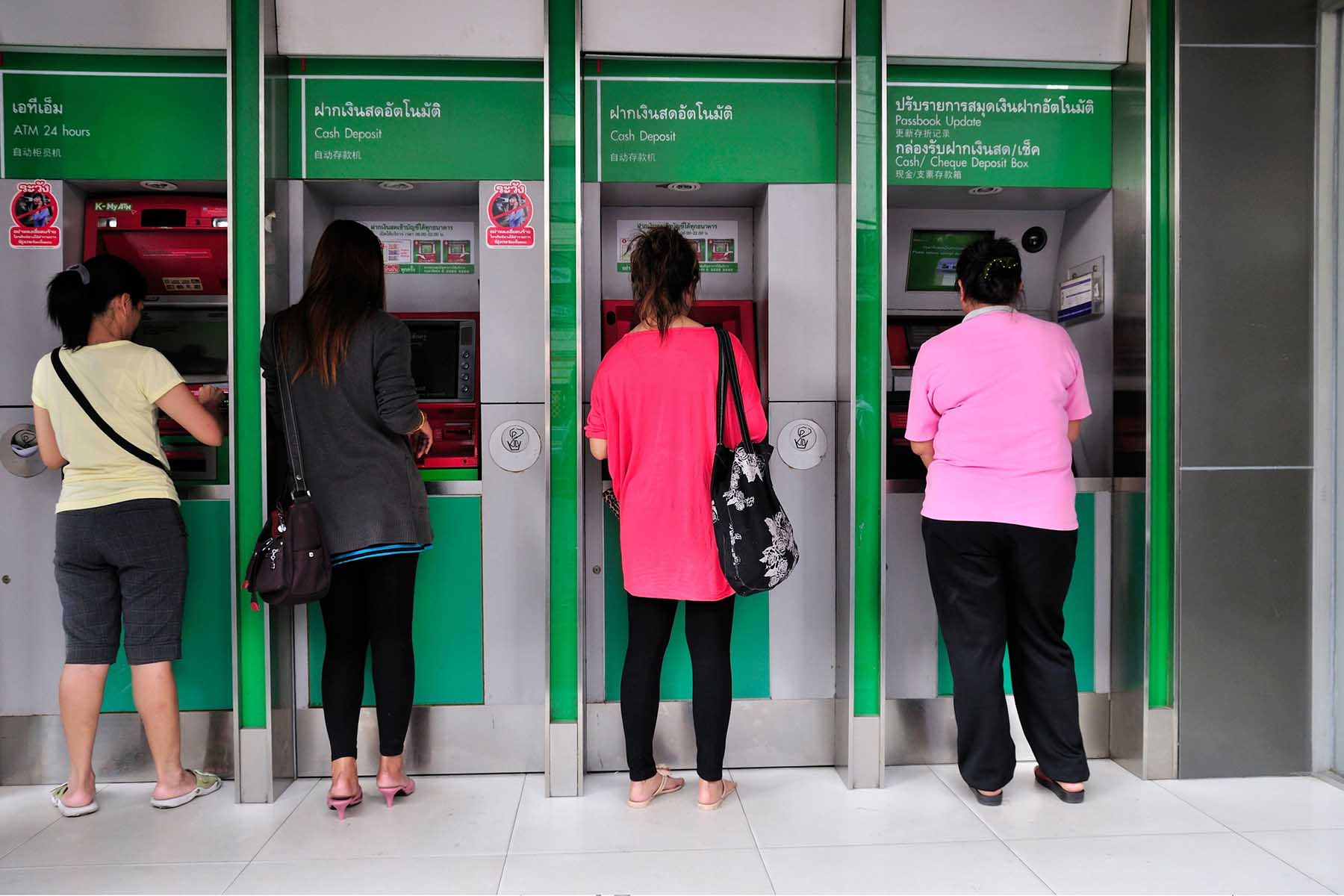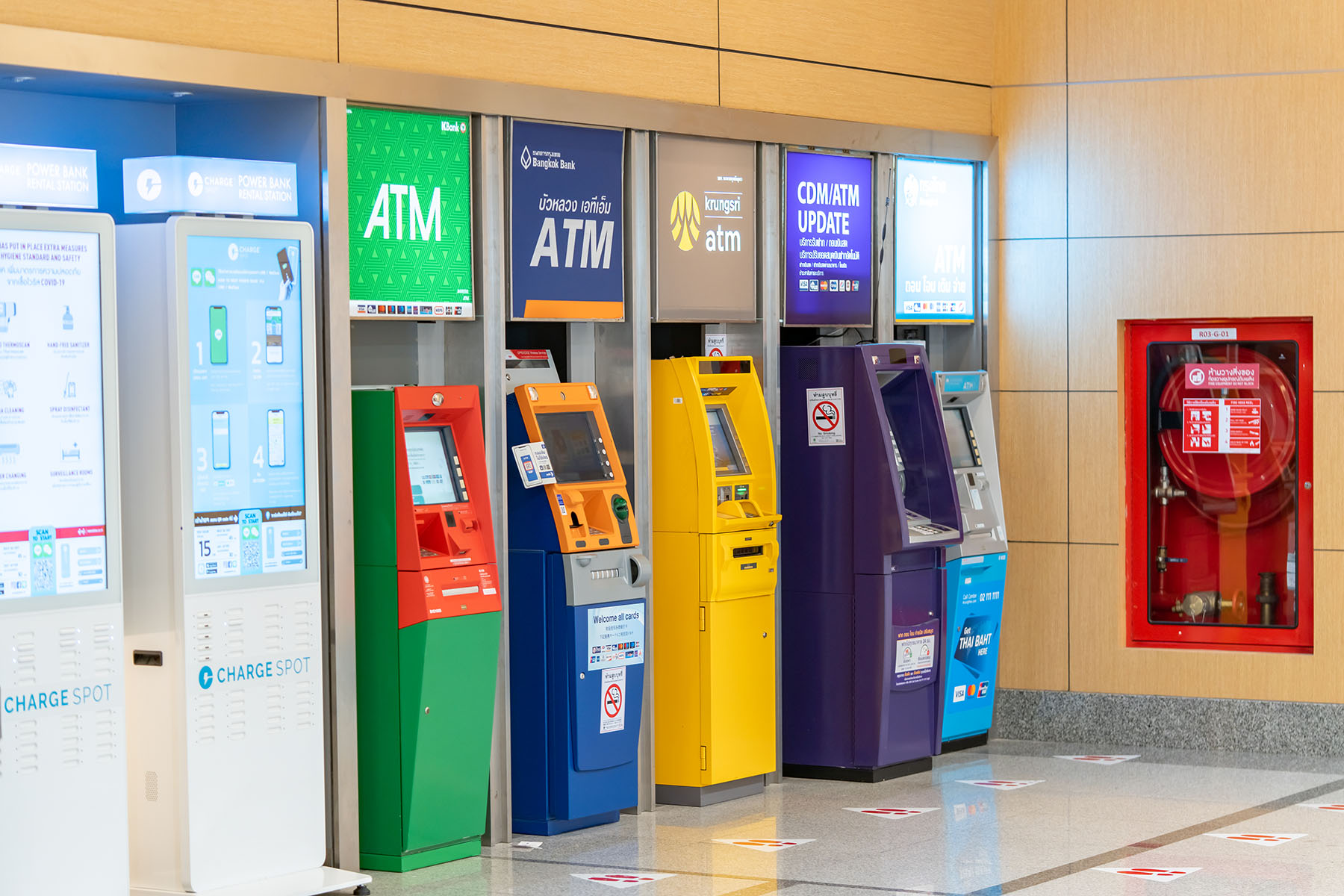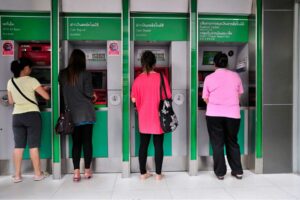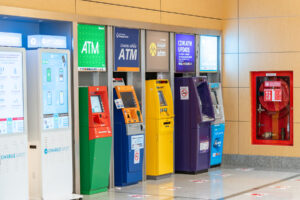In recent years, the uptake of mobile banking has risen in Thailand (ประเทศไทย), with most banks now offering account holders an app to use. They may not be as user-friendly or feature-rich as apps in other countries, but they’re growing in popularity. With new features added all the time and the Thai government encouraging the country’s first fully mobile banks, things are constantly improving.
Mastering mobile banking (ธนาคารบนมือถือ) can make a big difference to your life in Thailand. With instant access to your bank account from anywhere worldwide, digital banking is a must for the finance-savvy expat.
Read on for all you need to know about Thai mobile banking by looking at the following topics:
Wise
Do your finances go beyond borders? Then you need a fast and secure way to move money internationally. Wise is a global leader in online international money transfers, letting you move money at an exchange rate several times cheaper than your bank. Whatever your personal or business needs, Wise can make your money go further.
Mobile banking in Thailand
Mobile banking is a quick, convenient option that allows customers to control their finances remotely. Generally speaking, there are two forms of mobile banking:
- Traditional banks with mobile apps
- Fully digital banks

In the first case, customers can still go to branches to handle some things in person, while all bank services are virtual in the second.
At present, most Thai banks offer banking apps. However, there are currently no fully digital Thai banks. However, the Bank of Thailand has committed to issuing three licenses for digital banks; the first is expected to open in 2025. In the meantime, many expats choose to use international digital banks.
Thailand is a world leader in market penetration, with 68.1% of the population reporting using a banking app. Despite this, its banking apps may frustrate expats. They’re not as sophisticated as you might find in other countries and may lack key features that are standard elsewhere.
What mobile banking apps can you use in Thailand?
Which Thai banks have mobile banking apps?
Mobile apps are now a standard feature at Thai banks. Some of the most popular banks include:
- Bangkok Bank (ธนาคารกรุงเทพ)
- Kasikorn Bank (KBank) (ธนาคารกสิกรไทย)
- Krungthai Bank (ธนาคารกรุงไทย)
- Siam Commercial Bank (SCB) (ธนาคารไทยพาณิชย์)
- TMBThanachart Bank (TTB) (ธนาคารทหารไทยธนชาต)
What are the mobile banking app features?
Banking apps in Thailand usually offer features like:
- Virtual statements
- Local and international transfers
- Account opening (if you are already a customer of the bank)
You are unlikely to find any borrowing options available in a banking app.

While some banks offer customers the chance to open multi-currency accounts, this is not usually reflected in their apps. You can open, for example, a USD account. However, you won’t be able to manage it online, so you’ll need to go into your local branch whenever you want to make a transaction.
A digital bank account from an international provider is a better choice if you regularly use multiple currencies.

Local expert
Jane Evans
Insider tip
Note that Thailand has stringent limits on taking Thai baht out of Thailand, while foreign currency can be brought in more easily. If you intend to transfer Thai baht to another country, you must apply for international transfers with a valid work permit. This will enable the repatriation of funds.
How do you use a mobile banking app in Thailand?
When you open a bank account in Thailand, you can ask about access to the app.
As a customer, it is easy to download the app and set it up using the activation code that your bank gives you. In some cases, you will need to have a Thai phone number to activate your banking app. You may also need to be physically present in the country, as some apps use geo-location services. Once you’ve set up your account, you can use it internationally.
When setting up your account, be sure to add extra security features. By law, all Thai banking apps are required to include facial recognition for large transfers. Most will also allow you to set up two-factor authentication or a fingerprint code.
What are the mobile banking fees in Thailand?
Most banks in Thailand do not charge a fee for digital payment transactions. You may have to pay a small fee if you’re using a service like PromptPay (พร้อมเพย์, Prom Pay), the national digital payment scheme. However, this is usually less than ฿10, even for a large transaction.
Because it is currently impossible to have a digital-only bank account in Thailand, you will still need to pay standard banking fees.
Mobile banks in Thailand
How do mobile banks differ from traditional banks?
Mobile banks have no physical branches, so customers do everything online.
These accounts are great for digital nomads and expats on the go, as they also offer many other traveler-friendly features. For example, many mobile banks will allow you to hold several currencies in a single account.
Favorable exchange rates and instant transfers make switching currencies a breeze. Moreover, as you never have to visit a branch, you have more flexibility around banking hours, and there’s no need to worry about language barriers.

Although mobile banks offer convenience and ease, they still have a couple of downsides.
Most will allow you to open current and savings accounts, sometimes with high interest rates. However, loans and mortgages are usually not offered. As there are no branches, you’ll have to deal with customer services online if you have a problem, which can be time-consuming.
Sticking with a traditional bank might be better if you want human interaction.
A list of mobile banks in Thailand
There are currently no Thai mobile banks available. Expats can choose to bank with an international virtual bank like Wise.
How do you open a mobile bank account?
If you want to open a traditional bank account with mobile features, you’ll need to go to your local branch.
Opening a bank account in Thailand can sometimes be frustrating because each bank will ask for different documents. You might even find that two branches of the same bank have dissimilar requirements, with some significantly more welcoming to internationals than others. Asking for advice from local friends or expats can help avoid potential headaches.
Generally, you’ll need a student or work visa and work permit, though some banks only require a tourist visa. You’ll also need proof that you live in Thailand. You may even have to show a letter of reference from your embassy. The minimum deposit can be as low as ฿1,000 or as high as ฿3,000, and you will likely have to pay for a debit card.
By contrast, if you choose to open an account with a fully digital account, the entire process takes place online. You must scan your ID document and take a selfie or video to verify your identity. There’s usually no minimum deposit, although you will have to pay a fee if you’d like to order a debit card.
What mobile bank fees can you expect to pay?
Digital banks usually offer much lower fees than their traditional counterparts.
You can expect to pay a minimal amount for transfers. Sometimes, you’ll also be charged between 1% and 3% when you top up your account. You’ll need to pay for a debit card if you want one, and there may be fees if you use it to withdraw money at an ATM.
Some digital banks offer a two-tiered service. A basic account is free, but you can upgrade to a premium, paying a regular amount in exchange for lower fees, free transfers, and other perks. A premium account can work out cheaper over time if you move money around a lot.
How do you make mobile payments in Thailand?
PromptPay is the most popular form of digital payment in Thailand, with 67 million users. You’ll need a Thai phone number or citizen ID to register for this service. Once you’ve got an account, you can send instant payments to other PromptPay users.

There are no fees on transfers under ฿5,000, with charges not exceeding ฿10 on large remittances.
QR code payments have also become increasingly popular in Thailand in recent years. You only need a Thai banking app and a Mastercard, UnionPay, or Visa card to use them.
Thailand’s national QR code system has been expanded, becoming a cross-border service; it can be used in other Asian countries such as Vietnam, Cambodia, Indonesia, Malaysia, Singapore, and Japan.
Is mobile banking secure in Thailand?
The Bank of Thailand has responded to problems with fraud by introducing new security regulations; for example, all banking apps now require facial recognition for large transfers.
Before security was tightened, online banking fraud was a growing problem in Thailand, with 58,000 cases of nominee deposit account fraud reported between March and December 2022.
Set up extra security measures using biometrics or two-step verification to keep your account safe. Where possible, use your banking app rather than websites – which can be compromised – and do not download apps from unverified sources.
If you think you may have been the victim of banking fraud, report it immediately. Several banks have specific call centers dedicated purely to online fraud; you can start by contacting your bank and then take the matter to the police.
Useful resources
- Bank of Thailand (ธนาคารแห่งประเทศไทย) – for official banking information in Thailand
- Ministry of Digital Economy and Society (กระทรวงดิจิทัลเพื่อเศรษฐกิจและสังคม) – government department regulating banking
- PromptPay (พร้อมเพย์) – Thailand’s digital payment system






